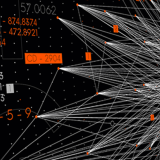EU context
Politikos formuotojai turi įgyti žinių, padėsiančių jiems spręsti klausimus, susijusius su veiksmingu reguliavimu, klausimus, kaip užtikrinti socialinę apsaugą plačiausia jos prasme, taip pat kaip suderinti įmonių, visuomenės ir asmenų poreikius išnaudojant didelį skaitmeninimo potencialą.
2015 m. Europos Komisija priėmė Europos bendrosios skaitmeninės rinkos strategiją, kurioje šios rinkos sukūrimas įvardijamas kaip vienas iš jos politinių prioritetų. Strategija gali atverti piliečiams ir įmonėms skaitmeninių galimybių ir ja siekiama stiprinti ES, kaip pasaulinės lyderės skaitmeninės ekonomikos srityje, poziciją. Ja siekiama didinti informacijos prieinamumą, padėti kurti darbo vietas reikiamų skaitmeninių įgūdžių turintiems asmenims ir transformuoti viešąsias paslaugas. ES plinta bendro vartojimo ekonomika, todėl Komisija ieško galimybių, kaip paskatinti naujų ir novatoriškų paslaugų kūrimą kartu užtikrinant tinkamas apsaugos priemones. 2016 m. Komisijos komunikate dėl Europos bendro vartojimo ekonomikos darbotvarkės piliečiams, įmonėms ir valstybėms narėms paaiškinamos šios srities taisyklės ir politinės rekomendacijos.
Eurofound veikla
EUROFOUND platesniu mastu nagrinėja su darbo sąlygomis, darbo reguliavimu ir kitomis sritimis susijusias pasekmes, kurias sukelia darbo rinkai skirtos didėjančio masto ir apimties skaitmeninės technologijos.
Tiriamas poveikis užimtumui, kurį lemia naujai atrastos paslaugų srities technologijos. EUROFOUND taip pat nagrinėja, kokias pasekmes darbo rinkoje sukelia platformų ekonomikos, pavyzdžiui, visuomenės patalka. Be to, tęsiamas IRT srities judžių darbuotojų darbo ir užimtumo sąlygų tyrimas.
Darbo ir užimtumo pobūdis skaitmeniniame amžiuje bus tiriamas daugiausia dėmesio skiriant:
Svarbiausias indėlis
Kartu su Tarptautine darbo organizacija (TDO) rengiamoje ataskaitoje apie darbą bet kur ir bet kuriuo metu nagrinėtas nuotolinio darbo ir IRT srities judaus darbo poveikis pasirinktiems darbo sąlygų aspektams.
EUROFOUND fondo seminarų ciklas (FSC) – tai galimybė vyriausybėms, profesinėms sąjungoms ir darbdaviams aptarti ES socialinės, užimtumo ir su darbu susijusios politikos kūrimo klausimus. 2016 m. FSC buvo orientuotas į skaitmeninimo poveikį darbui ir nacionalinių darbotvarkių geresnio skaitmeninių pokyčių įgyvendinimo klausimais rengimą.



































